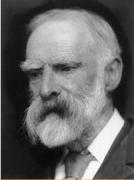|
|
||||||||||||||||||||||||
 |
Featured person
Recently added |
Edward Murphy LJ (1880 - 1945): |
||||||||||||||||||||||
Edward Sullivan Murphy was a brilliant scholar who nevertheless eschewed academe for the Law, rising to become a Lord Justice of Appeal.
The fourth son of Mr Justice Murphy of the Irish High Court, and Mary Josephine Keogh (a daughter of Mr Justice Keogh of the Irish High Court), Edward Murphy was educated at Charterhouse and Trinity College, Dublin where he had an outstanding undergraduate career, becoming a Scholar in Classics and graduating with a senior moderatorship in Classics (first class honours) with a large gold medal, Logic and Ethics, as well as Vice-Chancellor’s prizes for Latin verse and prose, and Greek verse.
Rejecting an approach to seek a fellowship at Trinity, Murphy was called to the Irish Bar in 1903 and joined the North West Circuit. Appointed a KC in 1918, it was as a young silk and convinced unionist that he decided to move to Belfast in 1921 when Northern Ireland became a separate entity. This was a courageous move, because although he had been a member of the North West Circuit, he had no personal or professional links with the main centres of population, industry and commerce in the east of the province.
Murphy soon established an unassailable position as one of the two leaders of the new Northern Ireland Bar, the other being his great friend Anthony Babington, also a former member of the North West Circuit. Murphy rapidly acquired a large practice, and Lord MacDermott, later lord chief justice of Northern Ireland, described him as an advocate as being a highly skilled and polished performer, and an anonymous “Appreciation” published the day after his death (probably written by Babington) described him as a man of wide culture and a profound lawyer, whose mind was quick and industry remarkable.
A proud and active member of the Orange Order, it was inevitable that Murphy would enter politics, being elected a Unionist member of the Northern Ireland Senate in March 1929, resigning less than three weeks later to successfully contest the City of Derry seat in the Northern Ireland General Election, holding the seat until his appointment to the Court of Appeal in 1939.
Appointed Attorney General in December 1937 following Sir Anthony Babington’s appointment to the Court of Appeal, Murphy was sworn of the Northern Ireland Privy Council. He was appointed a Lord Justice of Appeal in April 1939 to fill the vacancy created by the death of Lord Justice Best, serving until his death in December 1945. Described by Lord MacDermott as a firm but competent judge at first instance, and very competent indeed in the conduct of criminal cases, and in his opinion Murphy would have left his mark increasingly on the Court of Appeal if his judicial career had not been cut short.
Away from the courts Murphy was a prominent member of the Church of Ireland, holding diocesan office, and a leading supporter of the Church of Ireland Mission to Seamen. He took a keen interest in youth movements, particularly the Sea Cadets and the Boys Brigade, being an office-bearer in both organisations.
Murphy was married twice. His first wife was a daughter of Lord Justice Holmes of the Irish Court of Appeal, and after her death he married a daughter of John Buchanan of Kilmarnock; she survived him.
| Born: | 4 February 1880 |
| Died: | 3 December 1945 |
| AR Hart |
| Bibliography: Kenneth Ferguson (ed): King’s Inns Barristers 1868-2004; AR Hart: A history of the Bar and Inn of Court of Northern Ireland; John F Harbinson: The Ulster Unionist Party 1882-1973 its development and organisation: Sir Edward Jones: Jones LJ his life and times; Lord MacDermott: An enriching life; www; ILT&SJ, lxxix (1945), 297; The Belfast Newsletter, 4 December, 1945 |


Home | Our Policies | Plaques | Browse | Search | Sponsors | Links | Help | Contact
Privacy & Disclaimer | Cookie Policy | Site Map | Website Design By K-Point
© 2024 Ulster History Circle









